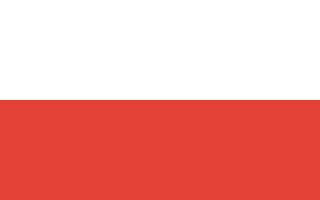This article has multiple issues. Please help improve it or discuss these issues on the talk page . (Learn how and when to remove these template messages) (Learn how and when to remove this template message)
|
| Country | Australia |
|---|---|
| Governing body | Wrestling Australia |
| National team(s) | Australia |
International competitions | |
Wrestling is a low profile individual sport in Australia that Wrestling Australia is the national governing body of the sport, which organise competitions, and the national and Olympic team duties. In Australia the recognised wrestling styles include freestyle, Greco-Roman, beach and indigenous (Coreeda). [1] Wrestling competitions and associations exist in the Australian Capital Territory, New South Wales, Queensland, South Australia, Tasmania, Victoria and Western Australia. [2]

Wrestling is a combat sport involving grappling-type techniques such as clinch fighting, throws and takedowns, joint locks, pins and other grappling holds. The sport can either be theatrical for entertainment, or genuinely competitive. A wrestling bout is a physical competition, between two competitors or sparring partners, who attempt to gain and maintain a superior position. There are a wide range of styles with varying rules with both traditional historic and modern styles. Wrestling techniques have been incorporated into other martial arts as well as military hand-to-hand combat systems.

Wrestling Australia is the organization that currently governs Beach wrestling, Freestyle wrestling, and Greco-Roman wrestling for Men and Women in the Australia. Wrestling Australia is also the official representative to the Australian Olympic Committee (AOC) and to United World Wrestling (UWW) and is the national governing body of the sport.
A sports governing body is a sports organization that has a regulatory or sanctioning function. Sports governing bodies come in various forms, and have a variety of regulatory functions. Examples of this can include disciplinary action for rule infractions and deciding on rule changes in the sport that they govern. Governing bodies have different scopes. They may cover a range of sport at an International level, such as the International Olympic Committee and the International Paralympic Committee, or only a single sport at a national level, such as the Rugby Football League. National bodies will largely have to be affiliated to international bodies for the same sport. The first international federations were formed at the end of the 19th century.
Contents
Three Australians have won medals in freestyle events at the Summer Olympics. In Los Angeles in 1932, Eddie Scarf was third in the light-heavyweight division. Sixteen years later in London, Dick Garrard won a silver medal as a welterweight and Jim Armstrong won a bronze medal in the heavyweight division. Garrard is the only wrestler to be inducted into the Sport Australia Hall of Fame. Australia has never won a Greco-Roman Olympic medal. [3] [4]

The modern Olympic Games or Olympics are leading international sporting events featuring summer and winter sports competitions in which thousands of athletes from around the world participate in a variety of competitions. The Olympic Games are considered the world's foremost sports competition with more than 200 nations participating. The Olympic Games are held every four years, with the Summer and Winter Games alternating by occurring every four years but two years apart.

The 1932 Summer Olympics, officially known as the Games of the X Olympiad, was an international multi-sport event that was held from July 30 to August 14, 1932, in Los Angeles, California, United States.

Edward Richard Scarf was an Australian wrestler and boxer. He was Olympic bronze medalist in Freestyle wrestling in 1932, and also competed at the 1936 Olympics.









